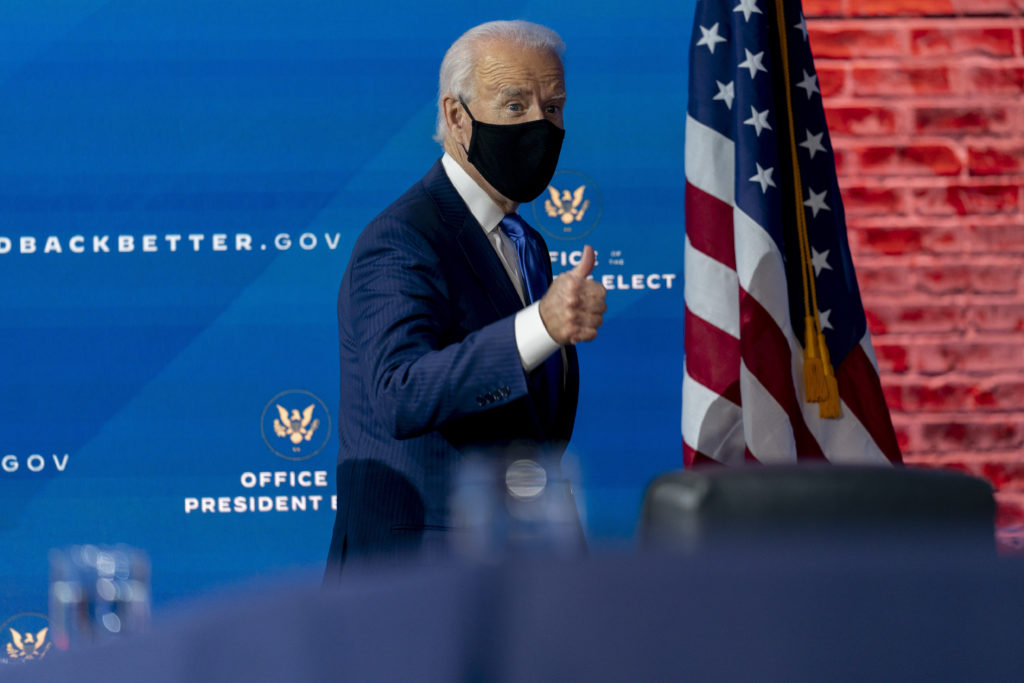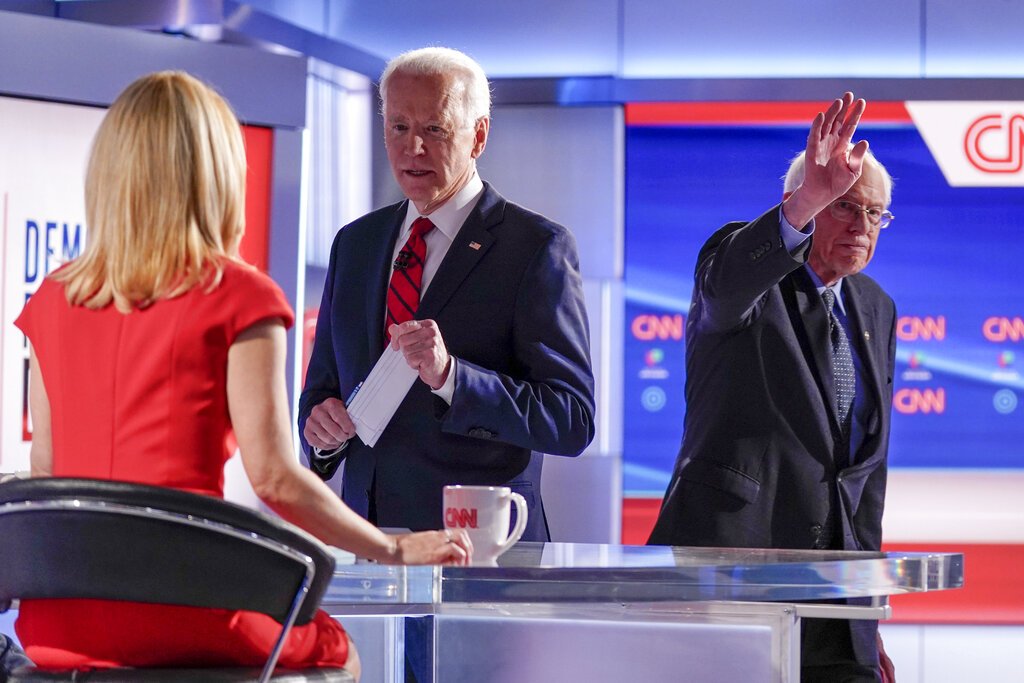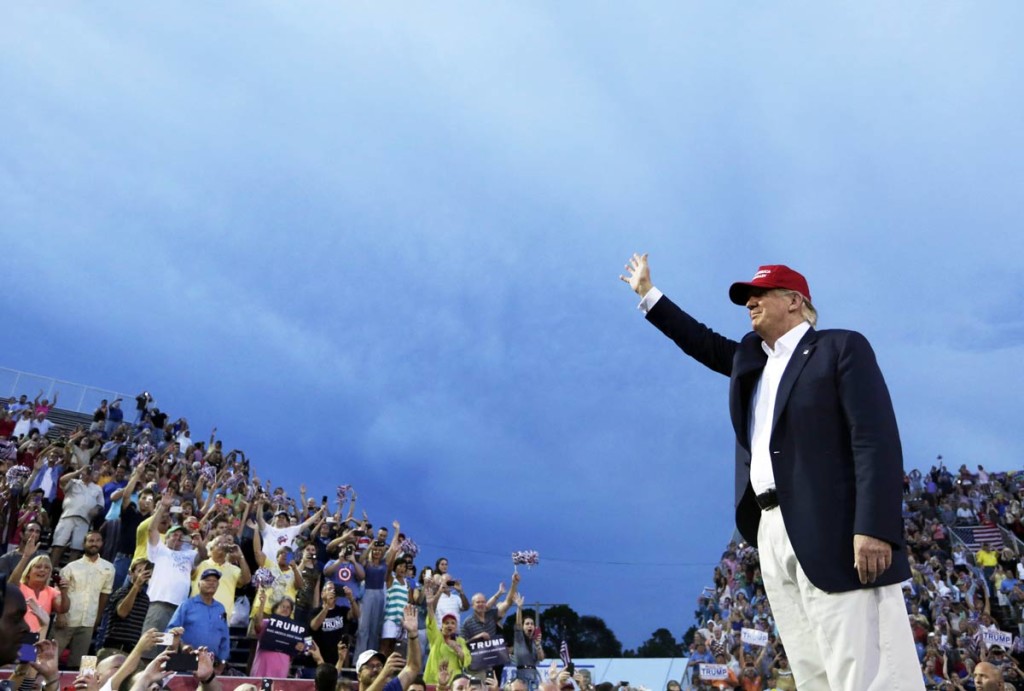Among first acts, Joe Biden to call for 100 days of mask-wearing

Joe Biden said Thursday that he will ask Americans to commit to 100 days of wearing masks as one of his first acts as president, stopping just short of the nationwide mandate he’s pushed before to stop the spread of the coronavirus. The move marks a notable shift from President Donald Trump, whose own skepticism of mask-wearing has contributed to a politicization of the issue. That’s made many people reticent to embrace a practice that public health experts say is one of the easiest ways to manage the pandemic, which has killed more than 275,000 Americans. The president-elect has frequently emphasized mask-wearing as a “patriotic duty” and during the campaign floated the idea of instituting a nationwide mask mandate, which he later acknowledged would be beyond the ability of the president to enforce. Speaking with CNN’s Jake Tapper, Biden said he would make the request of Americans on Inauguration Day, Jan. 20. “On the first day I’m inaugurated, I’m going to ask the public for 100 days to mask. Just 100 days to mask — not forever, just 100 days. And I think we’ll see a significant reduction” in the virus, Biden said. Biden also said he asked Dr. Anthony Fauci to stay on in his administration, “in the exact same role he’s had for the past several presidents,” as the director of the National Institute of Allergy and Infectious Diseases, the nation’s top infectious-disease expert. The president-elect said he’s asked Fauci to be a “chief medical adviser” as well as part of his COVID-19 advisory team. Regarding a coronavirus vaccine, Biden said he’d be “happy” to get inoculated in public to assuage any concerns about its efficacy and safety. Three former presidents — Barack Obama, George W. Bush, and Bill Clinton — have said they’d also get vaccinated publicly to show that it’s safe. “People have lost faith in the ability of the vaccine to work,” Biden said, adding that “it matters what a president and the vice president do.” In the same interview, Biden also weighed in on reports that Trump is considering pardons of himself and his allies. “It concerns me in terms of what kind of precedent it sets and how the rest of the world looks at us as a nation of laws and justice,” Biden said. Biden committed that his Justice Department will “operate independently” and that whoever he chooses to lead the department will have the “independent capacity to decide who gets investigated.” “You’re not going to see in our administration that kind of approach to pardons, nor are you going to see in our administration the approach to making policy by tweets,” he said. Vice President-elect Kamala Harris added that any decision coming out of the Department of Justice “should be based on facts, should be based on the law — it should not be influenced by politics.” Republished with the permission of the Associated Press.
Pandemic forces CNN into a debate unique to campaign cycle

The coronavirus epidemic dominated preparation for the two-hour debate.
Dominating TV, Donald Trump a ratings draw

Opinion polls are one thing, but Nielsen numbers speak more loudly to television executives: Republican presidential frontrunner Donald Trump‘s ability to pull in viewers makes him catnip for news programs and wins a level of coverage that feeds on itself. NBC’s “Meet the Press” had its biggest audience in more than a year for its Trump interview on Aug. 16, leading that show’s biggest competitors — ABC’s “This Week” and CBS’ “Face the Nation” — to feature phone interviews with the New York businessman this past Sunday. After CNN turned Jake Tapper‘s interview with Trump into a prime-time special last week and earned its best ratings at that hour in a month, the network repeated it two nights later. Two Trump interviews on Sean Hannity‘s Fox News Channel show this month both brought in around 2.2 million viewers, well above his typical audience. Trump is generally considered the biggest reason why Fox reached a startling 24 million people for the first GOP presidential debate earlier this month — the most watched program in Fox News history. That instantly made him a big “get” for TV producers, and the media savvy ex-reality show host has eagerly played along. Keenly aware of his drawing power, Trump suggested in a Time magazine interview that he could ask CNN to pay $10 million to charity for his participation in the next GOP debate. “He’s getting a lot of attention that he should get because he’s doing so well in the polls and he’s getting a lot of attention because he’s Donald Trump, and you never know what he’s going to say,” said David Bohrman, a television consultant and former CNN Washington bureau chief. “It’s not negligence to cover him,” he said. Aware of that drawing power, cable news outlets cover Trump events with an intensity the other 16 Republican candidates can only envy. A town hall meeting in New Hampshire last week drew live coverage. CNN and Fox News both cast aside regular programming Friday to pick up Trump speaking at a rally in Alabama. Trump’s unpredictability is a bonus. His critical comments about Fox’s Megyn Kelly for her debate questions, made during an interview with CNN’s Don Lemon on what would normally be a sleepy August Friday night, put that show in headlines for the entire weekend. Viewership during the seven call-in interviews that Trump has given to MSNBC’s “Morning Joe” since June 18 rose 22 percent from what the talk show averaged 10 minutes prior to his call, the Nielsen company said. On July 24, the size of the audience jumped 47 percent in only a few minutes when Trump spoke. Danny Shea, editorial director of The Huffington Post, compared the attention news networks are giving to Trump to CNN’s non-stop coverage of the missing Malaysian airliner last year. He was on “Morning Joe” last week to defend HuffPo’s declaration that it would only cover Trump’s candidacy in its entertainment section, a decision that grows harder to defend with each new poll. “There’s an open secret that (Trump’s campaign) is a joke and a spectacle,” Shea said, “and by going wall-to-wall on it you’re just legitimizing it.” Morning Joe co-host, Joe Scarborough, rejected the argument that Trump had more ratings than news value. During off-the-air meetings, “nobody ever says, ‘OK, Donald Trump is great for ratings.’ What we say is, ‘what the hell is going on? Can you believe this? What is happening?’ He is a very real story, and the longer he stays in front, the more of a story he’s going to be.” In past campaigns, the media’s “invisible primary” gave bursts of early attention to candidates before voters settled things, to which Gary Hart, Howard Dean, John McCain, Jimmy Carter can attest. None matched Trump for attention, said Thomas Patterson, acting director of the Joan Shorenstein Center on the Press, Politics and Public Policy at Harvard University’s Kennedy School of Government. Only two months ago the GOP had a shapeless field of candidates, and now the non-Trumps are so starved for attention that some will struggle to survive until voting begins. Bohrman said Trump is getting a level of attention he normally doesn’t see until spring of an election year, when nominations are all but decided. “It’s kind of a ‘no time for losers’ policy in the newsroom,” Patterson said. Trump frequently mixes it up with the media, often through Twitter. Sometimes he’s playful, like suggesting that “Morning Joe” co-host Mika Brzezinski be paid more than Scarborough. Often he’s quite serious, and his reaction to Fox’s Kelly struck some who heard it as offensive. At the Alabama rally, Trump asked the audience what they thought of cable networks. Fox got cheers and MSNBC boos, making the latter network’s decision not to televise the speech live fortunate. At this point, it’s hard to tell how much attention Trump is receiving because he’s a frontrunner, and how much is because producers know he’ll provide a reliable ratings bump. “At the end, does it really matter if both are valid reasons for covering him?” Bohrman said. “There’s not a lot of other compelling stuff on television now. It’s the reality show of the season.” Republished with permission of the Associated Press.


